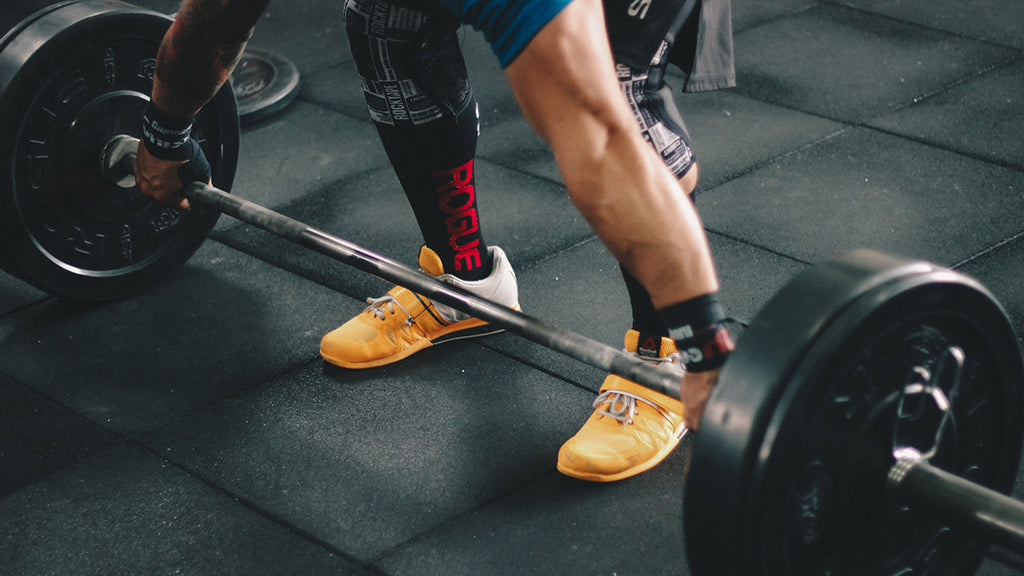Weight lifting is a popular exercise that can help build strength and improve overall fitness. However, many weight lifters are unaware that their routine could contribute to the development or exacerbation of hemorrhoids. Understanding the relationship between weight lifting and hemorrhoids is crucial for those who want to maintain their fitness regime without compromising their health. This blog post explores the connection, causes, prevention tips, and effective management strategies.
What Are Hemorrhoids?
Hemorrhoids are swollen veins in the lower rectum and anus, similar to varicose veins. They can be internal (inside the rectum) or external (under the skin around the anus). Hemorrhoids are a common condition that can cause discomfort, itching, pain, and bleeding.
Symptoms of Hemorrhoids
- Pain or discomfort in the anal area
- Itching or irritation around the anus
- Swelling or a lump near the anus
- Bleeding during bowel movements
- Leakage of feces
The Link Between Weight Lifting and Hemorrhoids
Weight lifting, particularly heavy lifting, can contribute to the development or exacerbation of hemorrhoids due to increased abdominal pressure. This pressure affects the veins in the rectum and anus, causing them to swell and become irritated. Here are some factors to consider:
Increased Intra-Abdominal Pressure
During weight lifting, especially when lifting heavy weights or performing compound movements like squats and deadlifts, there is a significant increase in intra-abdominal pressure. This pressure can push down on the rectal veins, causing them to swell and potentially leading to hemorrhoids.
Straining
Straining during lifting, similar to straining during bowel movements, can increase the risk of hemorrhoids. Improper lifting techniques, such as holding your breath while lifting (known as the Valsalva maneuver), can exacerbate this pressure.
Repetitive Stress
Repeatedly lifting heavy weights without adequate rest can lead to chronic pressure on the rectal veins, increasing the risk of developing hemorrhoids over time.
Prevention Tips for Weight Lifters
While weight lifting can contribute to hemorrhoids, there are several strategies to help prevent them:
Proper Lifting Techniques
- Breathe Properly: Avoid holding your breath while lifting. Instead, practice controlled breathing techniques, such as exhaling during the lift and inhaling during the release.
- Use Correct Form: Ensure that you are using proper lifting form to minimize unnecessary strain. Seek guidance from a trainer if needed.
- Avoid Overlifting: Do not lift weights that are too heavy for your current fitness level. Gradually increase the weight as your strength improves.
Stay Hydrated
Drinking plenty of water helps keep stools soft and prevents constipation, reducing the need for straining during bowel movements, which can escalate hemorrhoids.
High-Fiber Diet
A diet rich in fiber can help maintain regular bowel movements and prevent constipation. Include fruits, vegetables, whole grains, and legumes in your diet to promote digestive health.
Take Breaks
Avoid prolonged periods of heavy lifting without breaks. Give your body time to rest and recover to prevent chronic pressure on the rectal veins.
Managing Hemorrhoids
If you develop hemorrhoids despite preventive measures, there are several effective management strategies:
Over-the-Counter Treatments
- Topical Creams and Ointments: Over-the-counter hemorrhoid creams and ointments can help reduce pain, itching, and swelling.
- Suppositories: These can provide relief from internal hemorrhoids by delivering medication directly to the affected area.
Home Remedies
- Warm Sitz Baths: Soaking the affected area in warm water for 15-20 minutes several times a day can help reduce swelling and discomfort.
- Cold Compresses: Applying cold packs to the area can numb the pain and reduce swelling.
- Witch Hazel: This natural astringent can be applied to external hemorrhoids to reduce inflammation and soothe irritation.
Medical Treatments
- Rubber Band Ligation: A procedure where a rubber band is placed around the base of the hemorrhoid to cut off its blood supply, causing it to shrink.
- Sclerotherapy: An injection of a solution into the hemorrhoid to shrink it.
- Coagulation: A treatment that uses heat or laser to harden and shrink hemorrhoids.
- Surgery: In severe cases, surgical removal of hemorrhoids (hemorrhoidectomy) may be necessary.
When to See a Doctor
While many hemorrhoid cases can be managed with home remedies and over-the-counter treatments, it’s important to seek medical advice if:
- You experience significant pain or discomfort
- There is excessive bleeding during bowel movements
- Hemorrhoid symptoms persist despite treatment
- You notice a lump or swelling that doesn’t improve
A healthcare professional can provide a proper diagnosis and recommend the most appropriate treatment options.
Incorporating Weight Lifting Safely
For those passionate about weight lifting, incorporating some safety measures can help you continue your fitness journey without compromising your health:
Gradual Progression
Start with lighter weights and gradually increase the load as your strength and technique improve. This helps your body adapt and reduces the risk of excessive strain.
Balanced Routine
Include a mix of exercises that target different muscle groups to avoid overloading any particular area. Incorporate rest days to allow your body to recover.
Core Strengthening
Strengthening your core muscles can provide better support during weight lifting and reduce the strain on your abdominal area, which can help prevent hemorrhoids.
Professional Guidance
Consider working with a certified personal trainer who can provide personalized guidance on proper lifting techniques and create a balanced workout plan.
Summary
Weight lifting is a beneficial activity for building strength and improving fitness, but it can contribute to the development or exacerbation of hemorrhoids due to increased intra-abdominal pressure and straining. By practicing proper lifting techniques, maintaining a high-fiber diet, staying hydrated, and incorporating rest days, you can minimize the risk of hemorrhoids while enjoying the benefits of weight lifting. If you do develop hemorrhoids, there are various treatments and management strategies available to alleviate symptoms and promote healing. Always seek medical advice if symptoms persist or worsen to ensure you receive the appropriate care.

